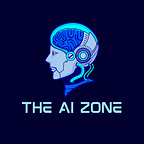Comparing ChatGPT-4 and Claude.ai: The Battle of AI Giants
In the rapidly evolving world of artificial intelligence, two names that frequently come up are ChatGPT-4 by OpenAI and Claude.ai by Anthropic. Both AI models have garnered attention for their conversational abilities and applications across various sectors. This blog post will explore the differences and similarities between ChatGPT-4 and Claude.ai, focusing on their technology, applications, and impact on users.
Background and Development
ChatGPT-4 is a product of OpenAI, developed as part of the GPT (Generative Pre-trained Transformer) series. The model is known for its deep learning techniques based on transformer architecture, enabling it to generate human-like text based on the prompts it receives.
Claude.ai, on the other hand, is developed by Anthropic, a company founded by former OpenAI employees. Claude is also based on a transformer architecture but is designed with a focus on safety and steerability, reflecting Anthropic’s commitment to creating AI that aligns closely with human intentions.
Key Features
1. Conversational Abilities:
- ChatGPT-4 boasts extensive training data and is capable of managing a wide range of conversational contexts. It can answer questions, simulate scenarios, generate text, and more, making it highly versatile.
- Claude.ai is similarly impressive in conversation, with a strong emphasis on reducing harmful outputs and adhering to ethical guidelines. Its responses tend to be cautious and aligned with safe conversational practices.
2. Safety and Ethics:
- ChatGPT-4 includes safety features to limit misinformation and bias, which are crucial for maintaining trust and reliability. OpenAI has continually updated its models to address these issues.
- Claude.ai shines in this area, as safety and steerability are core aspects of its design. Anthropic has implemented mechanisms to ensure that Claude adheres more strictly to ethical considerations than previous AI models.
3. Applications:
- ChatGPT-4 is used in a variety of applications, from customer service bots to content creation and beyond. Its ability to handle different languages and nuances in communication makes it a valuable tool for global enterprises.
- Claude.ai also holds promise in similar domains, particularly where there is a significant need for reliability and safety, such as in educational tools, mental health support platforms, and sensitive business applications.
Performance and User Experience
Both AI models are proficient in generating coherent and contextually appropriate responses. However, they may differ in handling specific tasks:
- ChatGPT-4 is often preferred for tasks requiring creative content generation or deep technical discussions.
- Claude.ai might be better suited for interactions requiring high levels of empathy or safety, such as counseling or education.
Technical Innovations
Both models are at the forefront of AI technology, incorporating advanced techniques to enhance performance and usability:
- ChatGPT-4 leverages cutting-edge machine learning algorithms to improve its understanding of context and detail in conversations.
- Claude.ai focuses on incorporating ethical AI practices, using techniques designed to prevent the perpetuation of biases and ensure outputs are aligned with user intentions.
Impact on Society
The societal impact of these AI tools is profound. They not only change how businesses operate but also influence educational methods, personal interactions, and even creative processes:
- ChatGPT-4 has been instrumental in automating customer service, aiding in education, and fostering creativity in writing and art.
- Claude.ai is envisioned to play a critical role in supporting mental health initiatives, enhancing personalized education, and ensuring ethical compliance in sensitive environments.
Future Prospects
The future development of these models will likely focus on enhancing their conversational abilities, safety features, and application scopes. For ChatGPT-4, improvements might center on even more nuanced understanding and creativity, while Claude.ai may continue to refine its ethical guidelines and safety protocols.
In conclusion, both ChatGPT-4 and Claude.ai represent significant advancements in the field of AI. Choosing between them depends on the specific needs and priorities of the user, such as the level of creativity required versus the importance of safety and steerability. As these technologies evolve, they will undoubtedly continue to shape our interaction with AI in everyday life and specialized applications alike.
For users and developers, understanding these differences is crucial for selecting the right AI tool to meet their needs, ensuring that the integration of these technologies into our lives is as beneficial and harmonious as possible.
